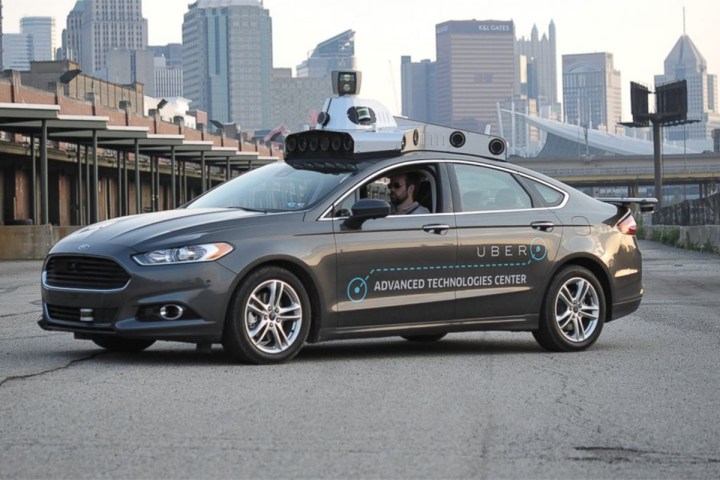
The settlement
Uber agreed to pay Waymo a 0.34 percent equity stake, according to CNBC. Investors currently value the company at $72 billion, meaning Waymo will receive $245 million. Uber CEO Dara Khosrowshahi wrote that he regrets the dispute between the two companies went as far as it did and stressed the firm sees Waymo as a partner, not merely as a rival.
“We agree that Uber’s acquisition of Otto could and should have been handled differently,” he wrote. He also apologies to the Uber employees who have been distracted by the lawsuit. Finally, he stressed he doesn’t believe Uber stole technology or intellectual property from Waymo but pledged to learn from the mistakes of his predecessor, Travis Kalanick.
The back story
Waymo — a part of Alphabet, which owns Google — filed suit against Uber last year, alleging that the ridesharing service stole some of its proprietary autonomous-car tech. Waymo began as Alphabet/Google’s self-driving car project years ago, and was spun off into its own company.
In Waymo v. Uber, the plaintiff claims a former employee named Anthony Levandowski stole proprietary files — 14,000 of them, to be exact — and used them to start a new company. The company in question is Otto, the autonomous-driving tech startup acquired by Uber in August 2016 for $680 million. Otto demonstrated a self-driving semi truck late last year.
The lawsuit alleges unfair competition, patent infringement, and trade secret misappropriation. It also claims the allegedly stolen technology earned Otto employees more than $500 million. Waymo asked a federal judge to put an end to its rival’s self-driving car program. Part of the request was granted, though how that will affect Uber is unclear because the motion remains sealed.
Uber has repeatedly denied Waymo’s charges, dubbing them nothing more than “a baseless attempt to slow down a competitor.”
The lawsuit was brought before United States District Judge William Alsup, who referred it to the U.S. Attorney’s Office to determine if the government should get involved. He emphasized the case needs to stay in court, and turned down Uber’s request to hire a private arbitrator in order to keep the dirty details of the legal battle out of the public eye.
“The court takes no position on whether a prosecution is or is not warranted, a decision entirely up to the U.S. Attorney,” Alsup wrote.
According to the lawsuit, Waymo became aware of the issue when it was inadvertently copied in an email from a supplier that showed an Uber LIDAR circuit board, which bore a “striking resemblance” to one of Waymo’s designs. The complaint accuses Levandowski of downloading the 14,000 files in question in December 2015. That allegedly included the circuit board, part of a sensor that helps autonomous cars “see” their environment.
Levandowski — who invoked the Fifth Amendment to avoid self-incrimination in connection with the case — left Waymo in January 2016 and formed Otto that May. The lawsuit alleges that, prior to his departure, he created a domain name for his new company, and told other Waymo employees that he planned to “replicate” the company’s technology for a competitor. Creating Otto was a clever way to hide his agreement with Uber from Google executives, according to Waymo’s lawyers; Uber planned on buying the startup before it was even founded, they added.
Levandowski gets his walking papers, Uber continues testing
Levandowski’s dependence on the Fifth Amendment ended up costing him his job, according to The New York Times. Uber confirmed on May 30 it has fired its top self-driving car engineer. The company asked him to cooperate with the ongoing investigation, but he failed to hand over the required documents in time.
This marks the first time that Uber has split publicly with Levandowski; the company has previously made no indication that it would ask the engineer to cooperate with court proceedings. Still, Uber maintains that it’s innocent. “We continue to believe that no Waymo trade secrets have ever been used in the development of our self-driving technology, and we remain confident that we will prove that fact in due course,” the company wrote.
Uber continues to test self-driving cars for use in its ridesharing service in Pittsburgh, Pennsylvania, and Tempe, Arizona. Cars were moved to the Arizona city after an aborted launch in San Francisco. That operation was shut down when the California Department of Motor Vehicles (DMV) revoked the registrations of Uber’s test vehicles, after the company refused to apply for the correct autonomous-car test permits.
Updated on February 9: Added information about the settlement.


